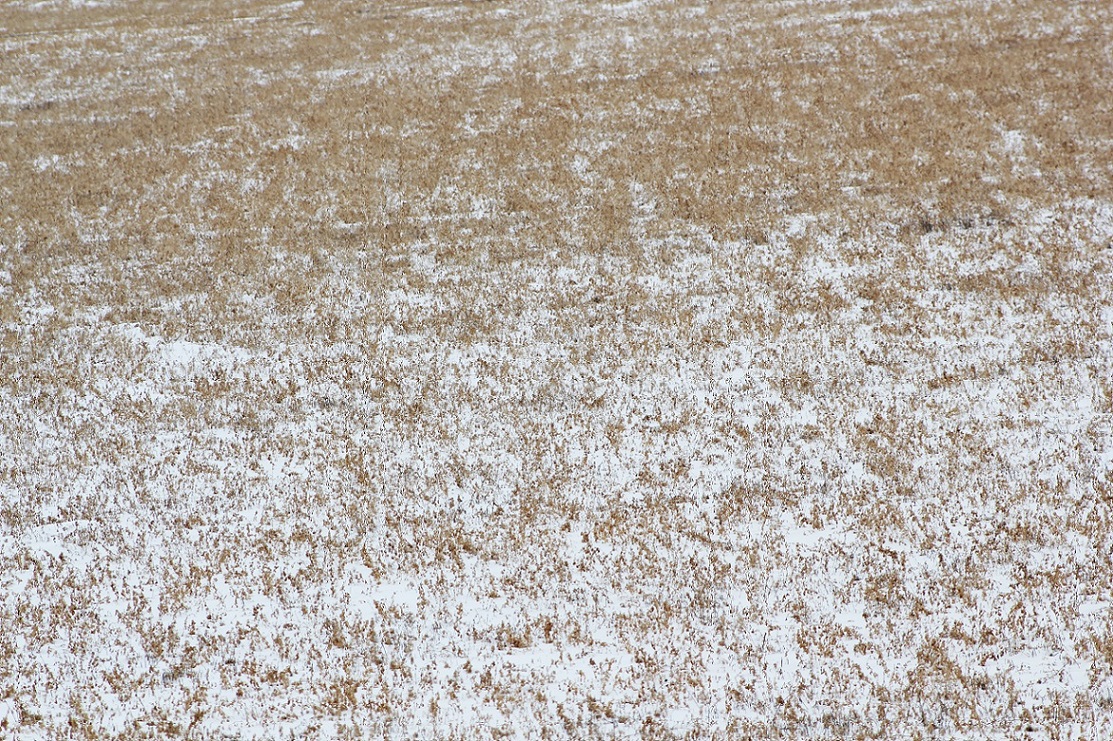
By Bruce Anderson, Nebraska Extension Forage Specialist
As single digit and below zero temperatures arrive, be happy if you received snow recently. Sure, snow created some problems, but snow is good – for alfalfa.
Alfalfa loves snow. In fact, nothing can increase the chance of alfalfa surviving winter better than a nice, thick blanket of snow. Let's see how this works.
Last fall’s moderate weather allowed alfalfa plants to harden well for winter, leaving them with a high concentration of nutrients in their roots and adequate soil moisture. This winterized condition enables alfalfa crowns and roots to withstand temperatures down as low as 5 degrees above zero.
Now I know this doesn't sound all that cold. After all, air temperatures have gotten or will get much colder than that. Fortunately, the soil doesn't get as cold as the air above it. And when soil is covered with a blanket of snow, this snow acts like a layer of insulation protecting the ground from bitter cold temperatures. Plus, it reduces the rate that soils and alfalfa roots dry out. This is why winters with little snow cover can cause more injury to alfalfa stands, especially if soils also are dry.
Of course, management practices in the fall influence the affect of snow on your alfalfa. Tall stubble provides some insulation value itself and it will catch more snow. Also, avoiding alfalfa harvest during the so-called risk period from mid-September through mid-October helps alfalfa roots winterize well by building up nutrients and reducing water content.
You may not like the way snow disrupts your daily routine, but remember how valuable it can be for your alfalfa.
To listen to BeefWatch podcasts go to: https://itunes.apple.com/us/podcast/unl-beefwatch/id964198047 or paste http://feeds.feedburner.com/unlbeefwatch into your podcast app.